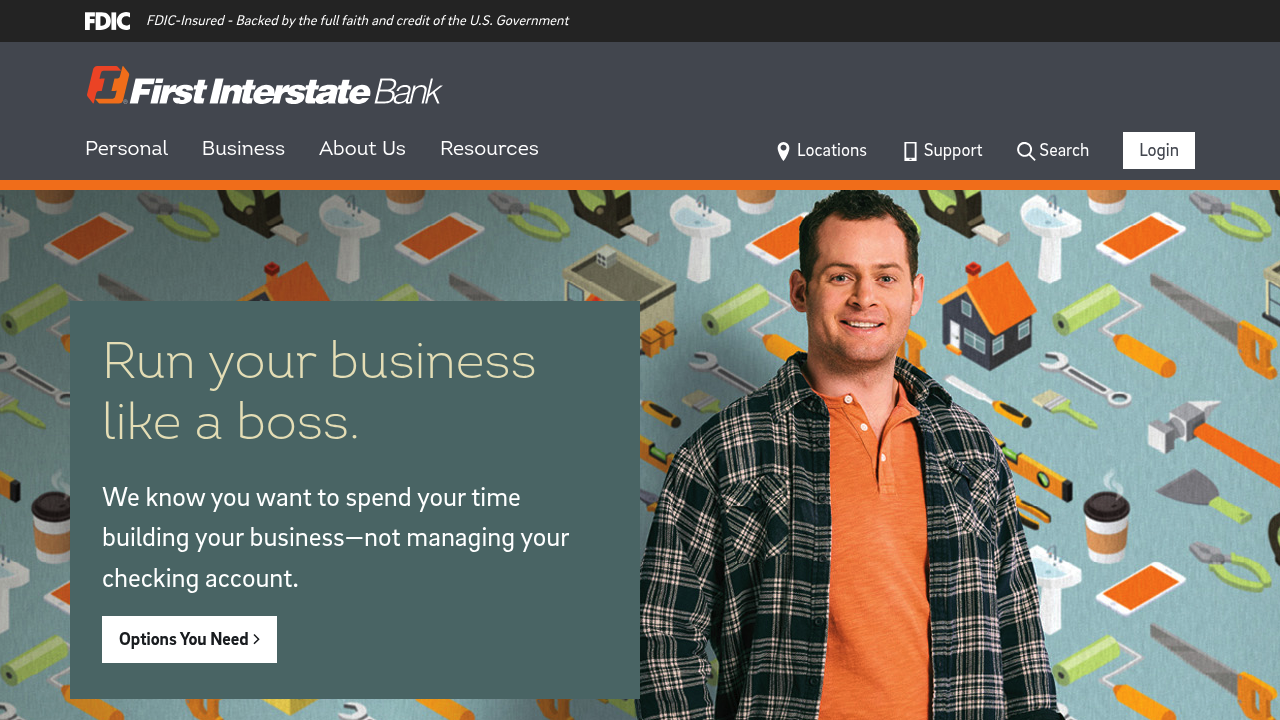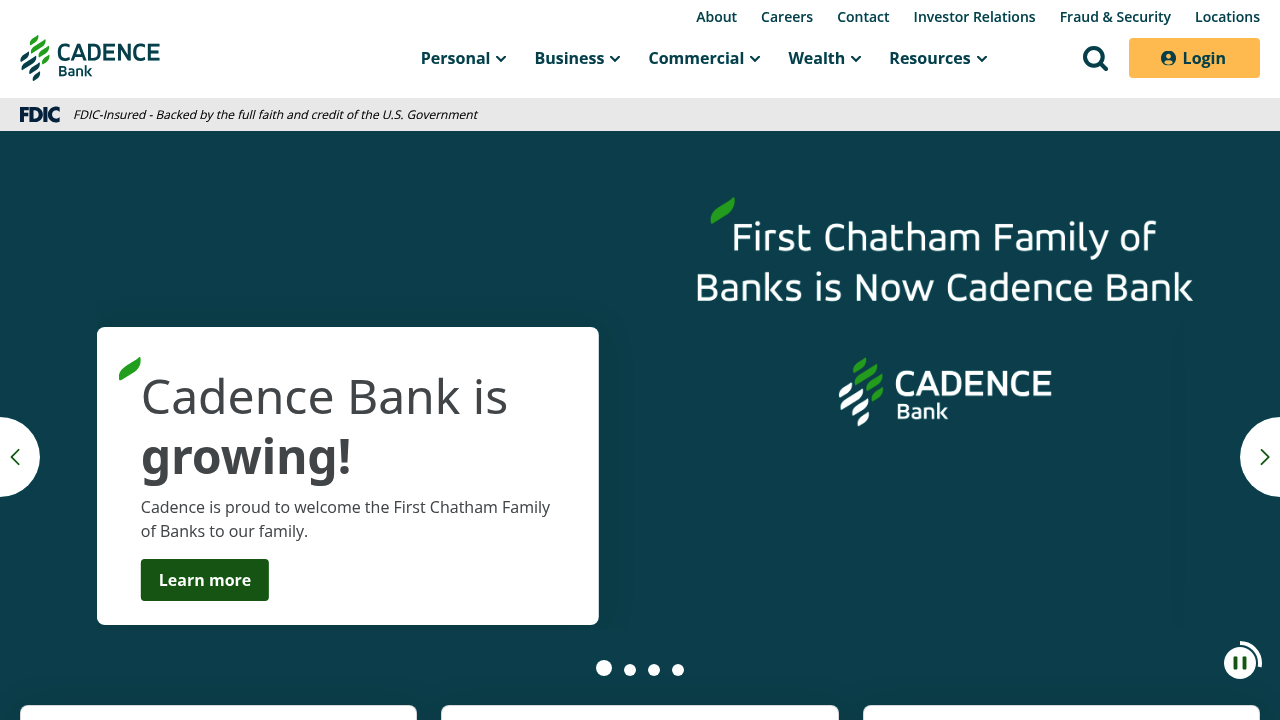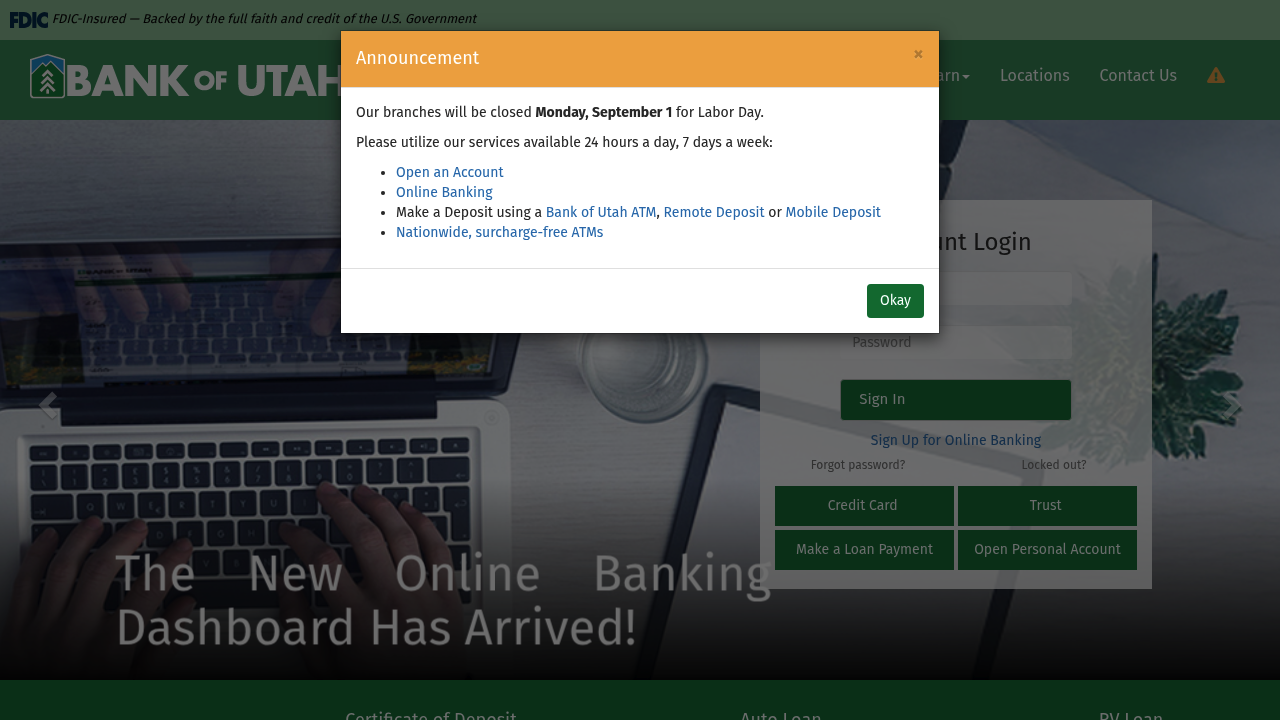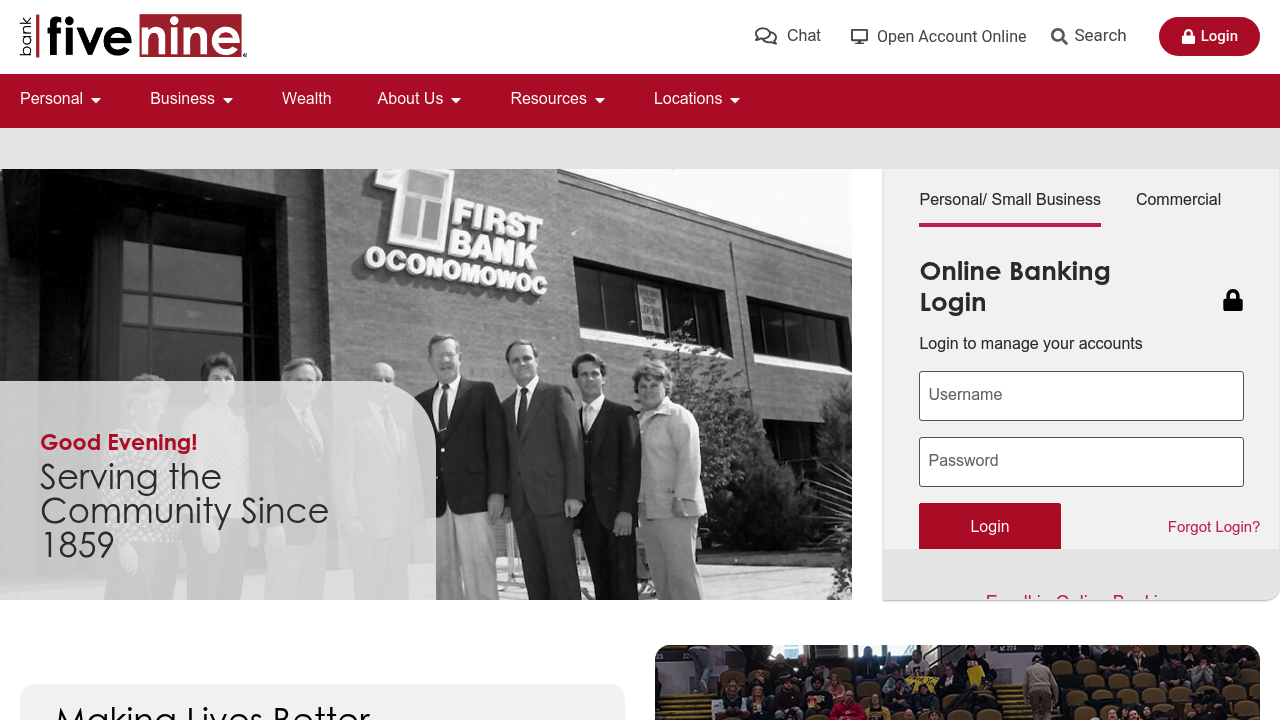General Warehousing and Storage
493110

 Scale Bank (MN)
Scale Bank (MN)
Scale Bank is ready to help you with expert banking solutions including small business loans, equipment financing and more!

 Salem Five Cents Savings Bank (MA)
Salem Five Cents Savings Bank (MA)
Salem Five Bank provides full-service financial services for the Greater Boston area, including banking, mortgage lending, loans, insurance and investments.

 First Mid Bank & Trust, National Association (IL)
First Mid Bank & Trust, National Association (IL)
First Mid Bank & Trust offers commercial & personal banking, insurance, & wealth management services throughout Illinois, Missouri, Texas & Wisconsin.

First Interstate Bank (MT)
First Horizon Bank (TN)

 FinWise Bank (UT)
FinWise Bank (UT)
FinWise Bank serves families and small businesses at our full-service, top-ranked community bank in Utah. We help fintech brands disrupt banking for the better.

Farmers State Bank (IA)

Cadence Bank (MS)

 Brookline Bank (MA)
Brookline Bank (MA)
At Brookline Bank, we provide a full range of financial services to individuals and businesses with outstanding service online, by phone, or at any of our convenient branches in greater Boston.

Bank of Utah (UT)
| Bank of Utah offers personal and business banking, consumer and commercial lending, mortgages, trusts and investments — with local experts and helpful digital tools.

 Bank Five Nine (WI)
Bank Five Nine (WI)
Bank Five Nine is a full-service, independent, community bank serving Southeast WI since 1859. Top SBA lender in the country. Find a location near you.
b1BANK (LA)
With a focus on community and customer service, b1BANK is dedicated to helping you achieve your financial goals while providing the care and attention you deserve.
SBA Loans for General Warehousing and Storage: Financing Growth in Logistics and Distribution
Introduction
General warehousing and storage companies provide essential logistics services for manufacturers, wholesalers, retailers, and e-commerce businesses. Classified under NAICS 493110 – General Warehousing and Storage, this sector includes firms that operate large facilities to store and manage goods before distribution. While demand continues to grow with the rise of global trade and online retail, warehousing businesses face financial challenges such as facility costs, staffing, equipment, technology upgrades, and cash flow gaps caused by client payment terms.
This is where SBA Loans for Warehousing and Storage Businesses can make a major impact. Backed by the U.S. Small Business Administration, SBA loans offer longer repayment terms, lower down payments, and government-backed guarantees. These loans help logistics companies expand facilities, purchase material handling equipment, improve technology, and stabilize cash flow while scaling to meet client demand.
In this article, we’ll explore NAICS 493110, the financial hurdles warehouse operators face, how SBA loans provide solutions, and answers to frequently asked questions from logistics entrepreneurs.
Industry Overview: NAICS 493110
General Warehousing and Storage (NAICS 493110) includes businesses that:
- Operate large distribution and storage facilities
- Provide inventory management and order fulfillment services
- Handle refrigerated and climate-controlled storage
- Offer cross-docking and transloading for transportation
- Support e-commerce, retail, and wholesale logistics
This sector is capital- and space-intensive, requiring significant investment in property, equipment, and labor to keep up with customer demand.
Common Pain Points in Warehousing and Storage Financing
From Reddit’s r/logistics, r/supplychain, and Quora discussions, warehouse operators often highlight these challenges:
- Facility Costs – Leasing or buying large warehouses and maintaining utilities requires major capital.
- Equipment Expenses – Forklifts, conveyors, pallet racking, and scanning technology add to costs.
- Labor & Staffing – Payroll for warehouse staff, drivers, and supervisors drives ongoing expenses.
- Technology Upgrades – Inventory management systems (WMS) and automation tools are critical but expensive.
- Cash Flow Gaps – Long payment cycles from clients can create liquidity issues.
How SBA Loans Help Warehousing and Storage Companies
SBA financing provides affordable, flexible capital that helps warehouse operators expand, modernize, and maintain cash flow.
SBA 7(a) Loan
- Best for: Working capital, payroll, equipment, or refinancing debt.
- Loan size: Up to $5 million.
- Why it helps: Provides liquidity for payroll, technology investments, and short-term operating costs.
SBA 504 Loan
- Best for: Warehouse facilities and large-scale equipment.
- Loan size: Up to $5.5 million.
- Why it helps: Ideal for purchasing or expanding warehouses, installing automation systems, or upgrading racking systems.
SBA Microloans
- Best for: Small or startup logistics companies.
- Loan size: Up to $50,000.
- Why it helps: Useful for small equipment, hiring staff, or initial technology adoption.
SBA Disaster Loans
- Best for: Warehouses impacted by natural disasters or emergencies.
- Loan size: Up to $2 million.
- Why it helps: Provides recovery funds for facility repairs, lost inventory, or emergency expenses.
Step-by-Step Guide to Getting an SBA Loan
- Check Eligibility – Must be a U.S.-based, for-profit warehousing business with good personal credit (typically 650+).
- Prepare Financial Documents – Include tax returns, P&L statements, client contracts, and equipment invoices.
- Find an SBA-Approved Lender – Some lenders specialize in logistics and real estate financing.
- Submit Application – Provide a business plan highlighting client base, facility utilization, and growth strategies.
- Underwriting & Approval – SBA guarantees reduce lender risk. Approval generally takes 30–90 days.
FAQ: SBA Loans for Warehousing and Storage Companies
Why do banks often deny loans to warehouse operators?
Banks may consider these businesses risky due to high capital needs, property costs, and dependence on client contracts. SBA guarantees reduce this risk and improve approval chances.
Can SBA loans finance warehouse facilities and equipment?
Yes. SBA 7(a) and 504 loans can fund building purchases, forklifts, racking, conveyors, and automation systems.
What down payment is required?
SBA loans typically require 10–20% down, compared to 25–30% with conventional loans.
Are startup warehousing companies eligible?
Yes. Entrepreneurs with logistics experience and client commitments may qualify for SBA financing.
What repayment terms are available?
- Working capital: Up to 7 years
- Equipment/facilities: Up to 10 years
- Real estate/warehouses: Up to 25 years
Can SBA loans support automation and technology upgrades?
Absolutely. Many warehouse operators use SBA loans to implement warehouse management systems, robotics, and tracking software.
Final Thoughts
The General Warehousing and Storage industry is essential to supply chain efficiency but faces financial hurdles tied to property, equipment, and staffing. SBA Loans for Warehousing Companies provide affordable, flexible financing to stabilize operations, expand capacity, and invest in technology for long-term growth.
Whether you run a small storage facility or a large distribution warehouse, SBA financing can provide the resources you need. Connect with an SBA-approved lender today and explore your funding options under NAICS 493110.
Filters
Tags
#Preferred Lenders Program
#SBA Express Program
#Existing or more than 2 years old
#Startup
#Loan Funds will Open Business
#Fixed Rates Startup
#Change of Ownership
#New Business or 2 years or less
#7a General
#Variable Rates
#Fixed Rates
#Standard Asset Base Working Capital Line of Credit (CAPLine)
#International Trade Loans
#Export Express
#7a with WCP
#Contract Loan Line of Credit (CAPLine)
#7a with EWCP
#Unanswered
#Preferred Lenders with WCP
#Preferred Lenders with EWCP
#Seasonal Line of Credit (CAPLine)
